a Roman Government of Greek Culture
The Roman-built forum in Philippi with its bustling traditional Greek agora resembled the forum in Rome (cover-photo remains of the Roman forum pillars shows some of the grandeur of these most-public areas of the Empires greatest cities.
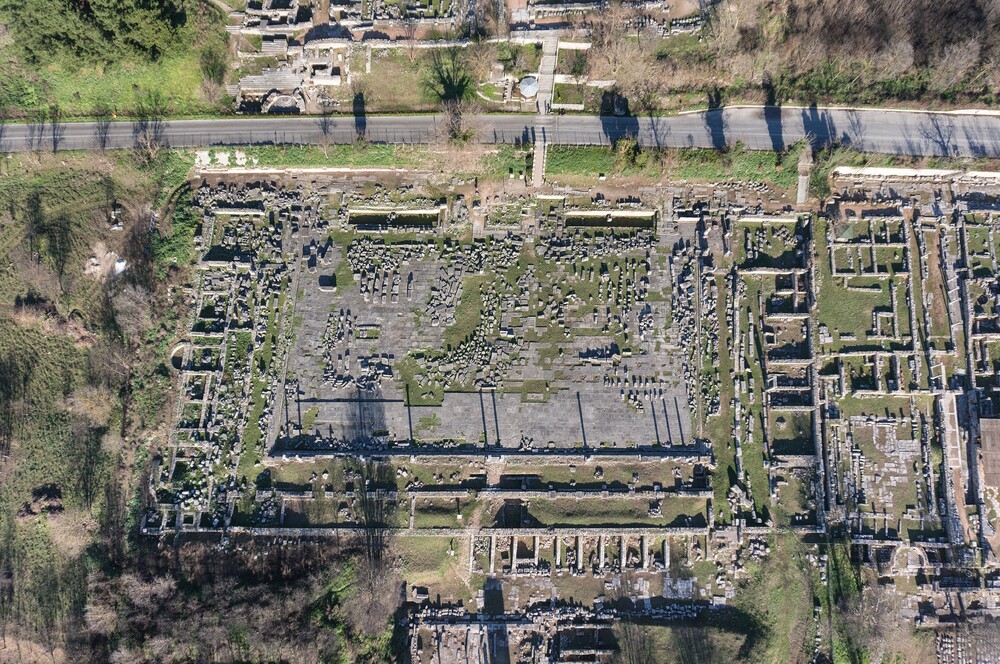
Similar-sized pillars in the foreground of the Philippi Forum and agora (to the R) in this aerial view of the archaeological ruins at Philippi gives us a glimpse at the size and importance of this Macedonian City-State namesake of the father of Alexander the Great – a second Rome at the head of the Aegean.
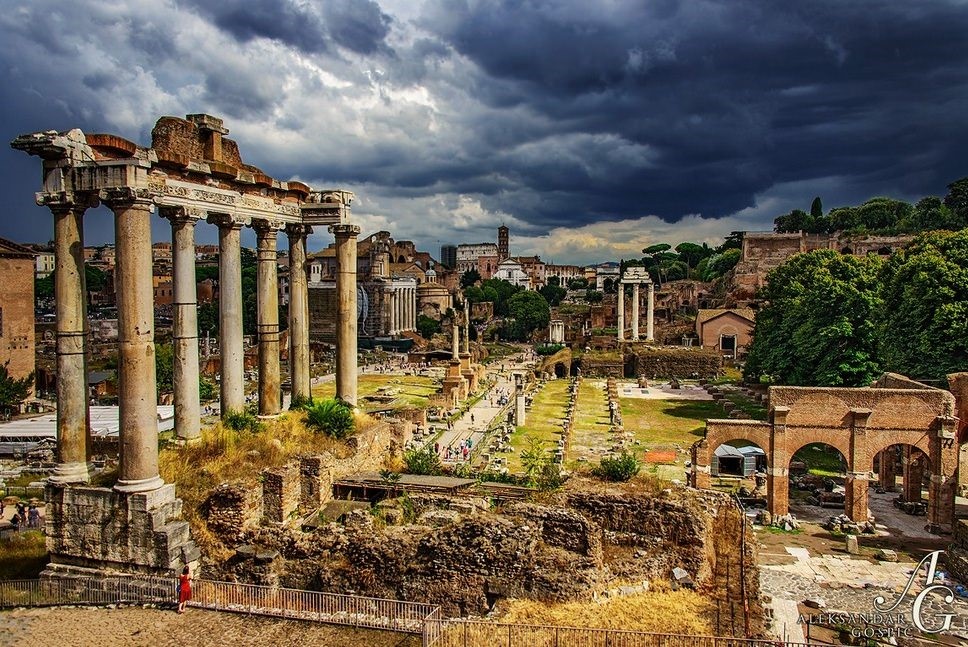
Agora
Romans call it the public square, others the marketplace — Greeks called it the agora.
From their own ancient traditions people worshiped there, bought and sold goods, conducted most public aspects of government over the governed and frequently gathered at the agora for general celebrations of social life preceding both religious and private parties.
Everybody’s there for business seven days a week. The agora was where the paths of the powerful crossed publically with every-day classes of the city-state and also slaves employed to the gain of all.
The Hellenist agora suited Rome as a place where Roman citizens could mingle with their colonists in Macedonia or any other defeated foe. Roman government was conducted formally from an adjacent forum and pavement for and gathering of citizens, people or slaves before the Prefect.
You may not agree with my overview of the agora condensing some 500 years back to ancient Greece up to the era of Rome’s first century dominance of all of Europe, but as always check my sources for more details. More later.
Philippi was ROME in western Macedonia.
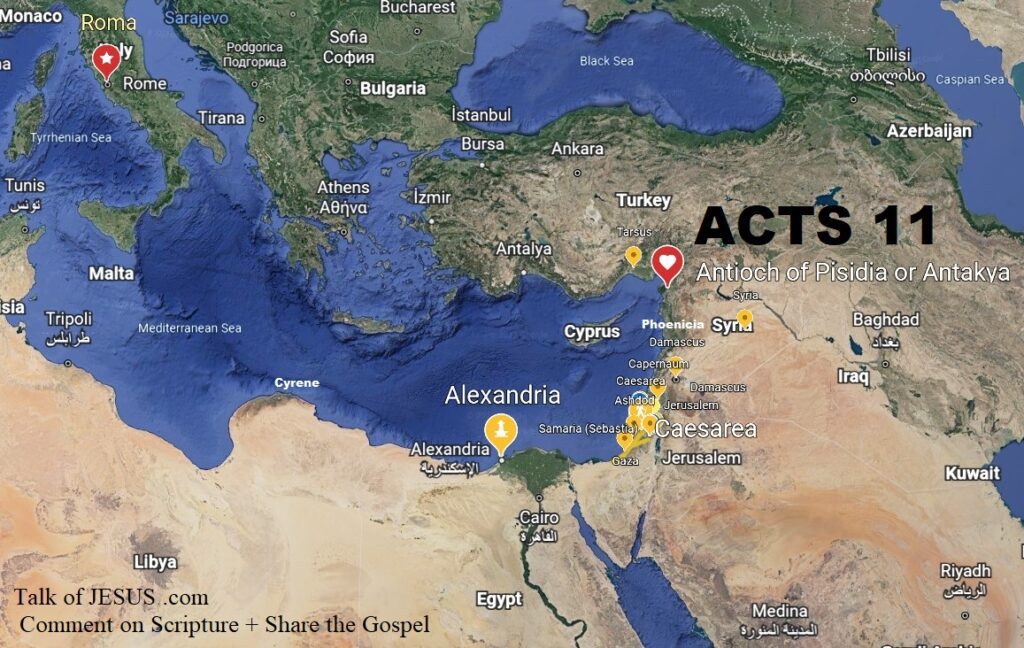
We began an introduction to Philippi last time which partially answered what Alexander the Great has to do with a second missionary journey of the apostle Paulos and Luke’s account of the ACTS of this 1st c. A.D. Roman citizen in a city of Greece.
a few additional thoughts that may change your mind about the significance of Philippi
- Greece is NOT a country
- City-States of ancient Macedon & Greece were separate from each other
- Democracy gave way to Empire
- Philippi was named for Emperor Alexander’s father
- Alexander died in the same Susa of Persia and Babylon where the Jews had been taken previously
- Augustus Caesar (mentioned in Luke’s Gospel) is the same Octavian who had defeated Brutus and Cassius in the Battle of Philippi
- Roman roads connected the land all across Eurasia
- Philippi as a port between Rome and Alexandria was strategically important SO..
Rome had rebuilt Philippi as a ROMAN city.
Think of Philippi as a 1st c. New YORK City to Roman colonies of a ‘new world’ similar to expansion seventeen centuries later when a current Roman conquest to the west Britannia would rule the seas.
Enter Paul and Silas apostles sent into all the world from a gateway Roman city of Philippi.
Acts of Paul and Silas
“These men are servants of the Most High God, who proclaim to you the way of salvation.”
v. 17b – a slave girl who had a spirit of divination
“I command you in the name of Jesus Christ to come out of her.”
v. 18b – Paul, to the spirit in her
And it came out that very hour.
We don’t know how many more days have passed in Philippi, but Luke records that the young slave girl no longer has any demonic power to profit her owners. And of course these influential men want justice against any men who have impeded their profit by evil means.
19 But when her owners saw that their hope of gain was gone, they seized Paul and Silas and dragged them into the marketplace before the rulers.
More about Philippi’s Forum & Agora
We need to see the Philippi of A.D. 50 as Roman citizens and Hellenist merchants of this important city would have viewed this scene of commerce interrupted by these out-of-towners.
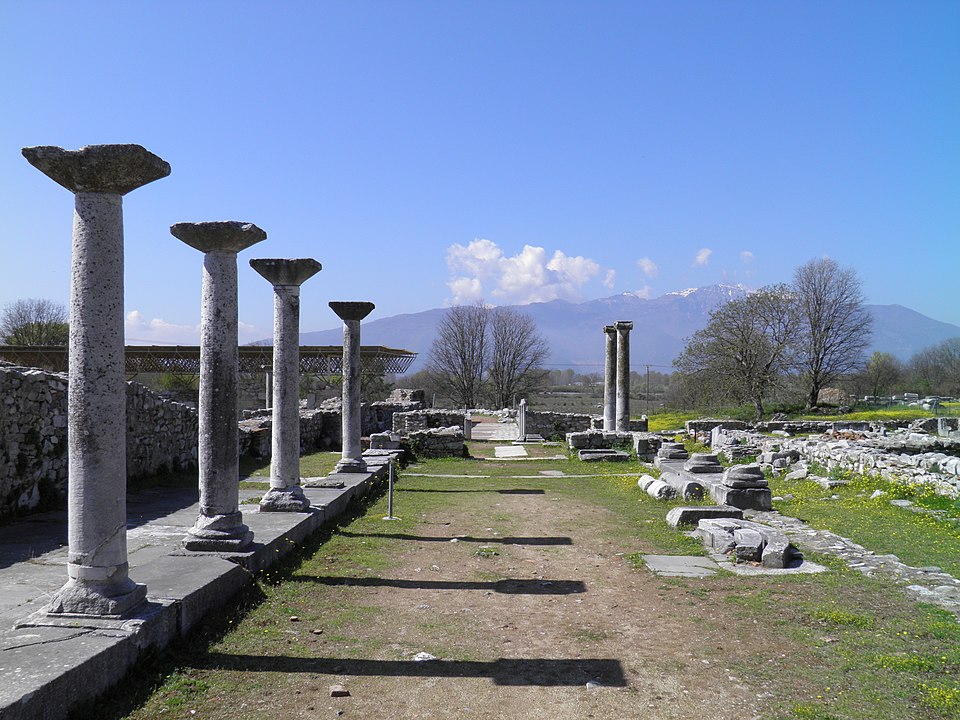
agora, in ancient Greek cities, an open space that served as a meeting ground for various activities of the citizens.
Agora – source Britannica, The Editors of Encyclopaedia. “agora”. Encyclopedia Britannica, 15 Dec. 2017, https://www.britannica.com/topic/agora. Accessed 13 March 2023.
- surrounded by public buildings and by temples. Colonnades, sometimes containing shops, or stoae, often enclosed the space, and statues, altars, trees, and fountains adorned it.
- the agora influenced the development of the Roman forum and was, in turn, influenced by it. The forum, however, was conceived in a more rigid manner than the agora and became a specific, regular, open area surrounded by planned architecture.
- meetings devoted to ostracism were still held in the agora, where the main tribunal remained.
- A distinction was maintained between commercial and ceremonial agoras
- Men accused of murder and other crimes were forbidden to enter it before their trials. Free men went there not only to transact business and to act as jurors but also to talk and idle
Democracy of the Marketplace
20 And when they had brought them to the magistrates, they said,
“These men are Jews, and they are disturbing our city. 21 They advocate customs that are not lawful for us as Romans to accept or practice.”
22 The crowd joined in attacking them,
and the magistrates tore the garments off them and gave orders to beat them with rods.
23 And when they had inflicted many blows upon them, they threw them into prison, ordering the jailer to keep them safely.
24 Having received this order, he put them into the inner prison and fastened their feet in the stocks.
ACTS of Paul and Silas — To Be Continued…

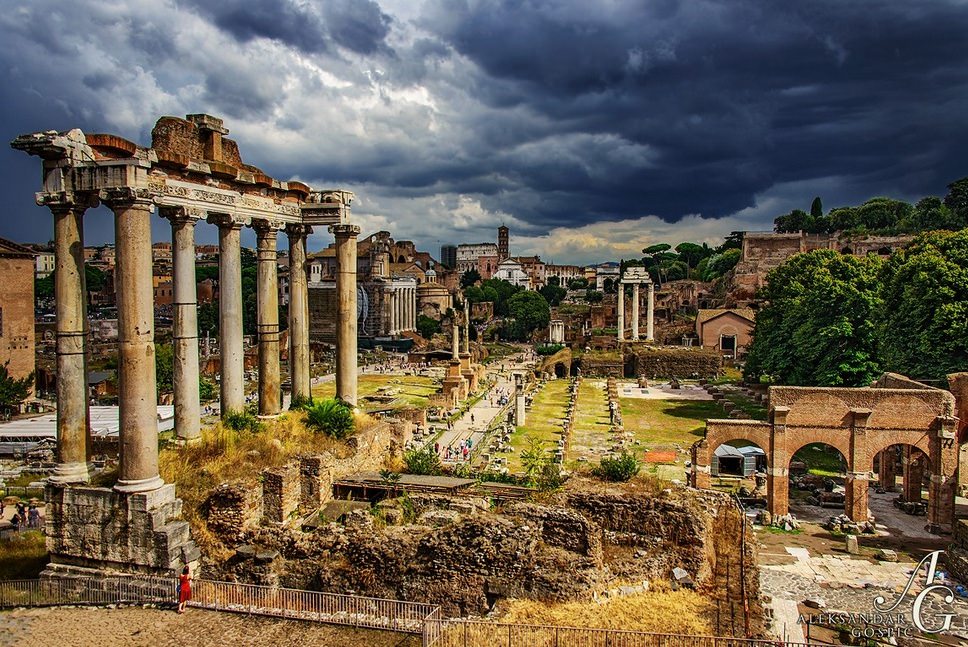
Leave a Reply